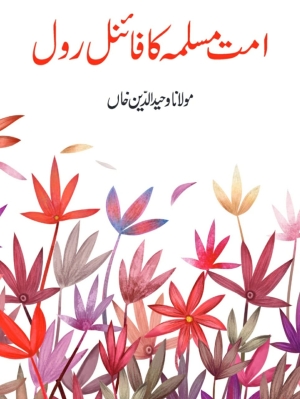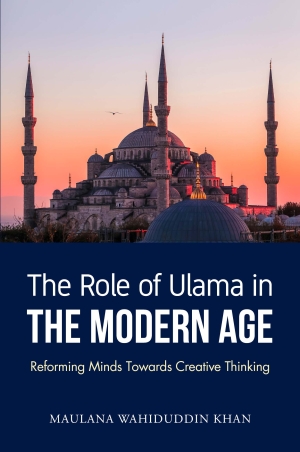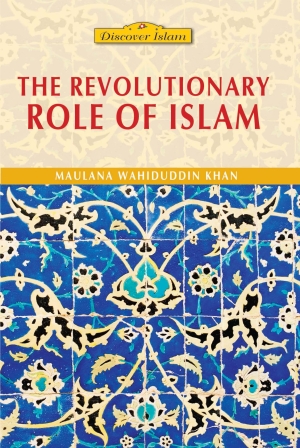According to verse 13 in chapter 42 of the Quran: “He has ordained for you the same way of religion which He had enjoined on Noah, and that We have now revealed to you, and which We had already enjoined for Abraham and Moses and Jesus so that you should remain steadfast in religion and not become divided therein.”
Referring to various communities who received guidance from their prophet, the Quran has this to say: “For each, We have appointed a law and a way. (5:48)
From these two verses of the Quran, we learn that the guidance God sent through His prophets has two parts to it. One is called Al-Deen, and the other is called Shariah or Minhaj.
Al-Deen refers to that part of divine guidance given equally to all the prophets, from Noah to the Prophet of Islam. It is the eternal part of God’s guidance. In this part of the guidance, there has never been any change in the past, nor will there be any future change. However, in the other part of divine guidance, known as the Shariah, we find changes being made. Different Prophets have been given a different Shariah. That is, unlike Al-Deen, Shariah is subject to change.
This division in the teachings means that God’s religion has an eternal message that has been the same. However, when this message is practically applied to any given situation, it becomes a matter of Shariah. Moreover, in Shariah, the situation has to be taken into consideration. It is due to this wisdom that we find differences in different Shariah. For, the circumstances keep changing. No Shariah can be eternal in its entirety. It will always remain a subject of Ijtihad or exercise of judgement with reasoning. In this exercise of Ijtihad, the practices of previous prophets can serve as examples for us.
Shariah is a non-political concept. Anyone who wants to follow the Islamic way of life in his personal affairs must refer to Shariah. It is only a matter of personal following; no institution or state is involved in this.
Featured Articles
Featured Videos
FAQs
According to the Quran, there are two major parts of Islam—religion (din) and the law (Shariah). Din or al-din is basic and absolute, always remaining the same, without the slightest change. It is obligatory for all believers, whatever the circumstances, and entails belief in the One God, and the worship of Him alone. The Shariah, on the other hand, may differ, depending on times and places. The task in reality is not synonymous with bringing about a change in the shariah but it is only a reapplication of the shariah in terms of altered circumstances. The task of effecting such reapplication, which was undertaken in the past, will, in like manner, continue to be carried out in the future. It is this process of continual adjustment that helps to keep Islam permanently updated.
Source: The Shariah and its Application
Shariah, in fact, is a non-political concept. This means that anyone who wants to follow the Islamic way of life in his personal affairs must refer to Shariah. It is only a matter of personal following; no institution or state is involved in this. In Chapter 5 of the Quran, there is a verse regarding this issue. It says:
“To every one of you, We have ordained a law and a way.” (5:48)
In this verse, the words shari’a and minhaj are used for personal behaviour. They have nothing to do with politics or the state.
This verse declares that the ummah (followers) of all the prophets were given a Shariah. And it is established by the Quran that no previous ummah, except the ummah Muhammadiyyah (Muslim community) was able to establish a state. Therefore, we will have to take the word Shariah in the sense that can be commonly applied to all the ummahs. This aspect of prophetic history is enough to believe that the word shari’a or Shariah is used in the sense of personal behaviour. Because the ummah of all the prophets were common in the matter of personal behaviour and not in political affairs. It was everyone’s need to know the religious teaching regarding his personal life. But as far as political teachings are concerned, they were not required because no government was established by these prophets.
Shira’a or Shariah literally means ‘method’. It is not equivalent to law or political injunction. Even when there is only one believer, he needs to follow the Shariah in his private life, way of worship, ethical behaviour, and personal dealings with other fellowmen. This is Shariah. And, in this sense, the word Shariah has no political connotation at all.
Source: Spirit of Islam August 2014
The word fatwa does not in any way mean a judicial verdict; it is simply a personal opinion. If a believer wants to know about his personal behaviour, for example, he wants to know about his way of worship or his dress, then, he may visit an Islamic scholar and put this personal question to him. And, that scholar may give him his opinion according to his knowledge of Islam. That is fatwa.
Establishing Darul Qaza or Darul Ifta is the institutionalisation of fatwa, which did not exist during the age of the Sahaba (Companions of the Prophet) and the Tabi’een (Companions of the Companions). It was an innovation of the later period of Islamic history.
Darul Qaza and Darul Ifta are not illegal, but a condition attaches to them. If the national tradition and the constitutional system of a country allow the establishment of such institutions, then there is no harm in it. Otherwise, establishing such institutions must be avoided. The word ‘Islam’ has a connotation of peace. So, ‘Muslim’ means a peaceful person. All Islamic teachings are based on the concept of peace. Muslims are asked to live as law-abiding members of every society, whether they are living as a minority community or a majority community, and whether they enjoy political power or not. In every situation, they must keep the peace and avoid all kinds of confrontation. There is a Hadith which says:
“By God, that person will never enter Paradise, who creates a nuisance for his neighbours.” (Sahih Muslim, Hadith No. 46)
A nuisance is not only that which you think is a nuisance but also anything that your neighbour considers to be troublesome. So, Muslims must adopt that kind of behaviour which is acceptable to their neighbours. Anything that is not acceptable to their neighbours is a nuisance. In this matter, the neighbour’s opinion must prevail and not that of Muslims.
Muslims are asked to live as law-abiding members of every society, whether they are living as a minority community or a majority community, and whether they enjoy political power or not. There are different kinds of nuisance. It is also a nuisance that the Muslim community insists on implementing its religious law in India, although the majority of Indian people and the system of India take it to be an unwanted initiative. Thus, Muslims must refrain from such behaviour as it creates a nuisance for their neighbours.
Source: Spirit of Islam August 2014
According to the Islamic principle, Shariah law is not a matter of imposition, rather it is a matter of following as per an individual’s capacity without creating conflict. A companion of the Prophet, Ibn 'Umar narrated: "We used to pledge to the Messenger of God to hear and obey." So he would say to us: "As much as you are able." (Jami` at-Tirmidhi, Hadith No. 1593). Today, there are fifty-seven Muslim countries, in every one of which Muslim leaders have launched a movement for the enforcement of the Shariah. But even after a long struggle, these movements have failed to achieve their goal. All they have succeeded in doing is creating traditions of violence and coercion.
In this regard, Muslim countries can be divided into two groups. One group consists of those where violent confrontation is going on between the ruler and the ruled, and the other consists of those where an oppressive, coercive system has been put in place. The latter are the countries where the rulers have suppressed these movements and established their rule by the use of force. Obviously, both these situations are undesirable from the Islamic viewpoint.
Had the Muslims in question followed the method of the Prophet, they would have learned that the right way of working was for their leaders to begin their work from the non-political field. By imparting peaceful training, these leaders could have reformed the mind and character of the people. While doing this, they could have opted for the way of status-quoism regarding the political system of the country. They could have subordinated matters of politics and government to the democratic process. They could have given the people the opportunity to elect their representatives by the peaceful, democratic procedure of voting, thus giving them their share in governance.
Had the Muslim leaders opted for this path of wisdom, certainly the conditions would gradually have changed. In these countries, first of all, a revolution in terms of thinking and character would have been brought about and then gradually politics and government too would have been revolutionized. But because of their blindness to prophetic wisdom, the leaders have not only failed to achieve their objective, but they have also incurred great losses within Muslim society.
Source: The Prophet of Peace









